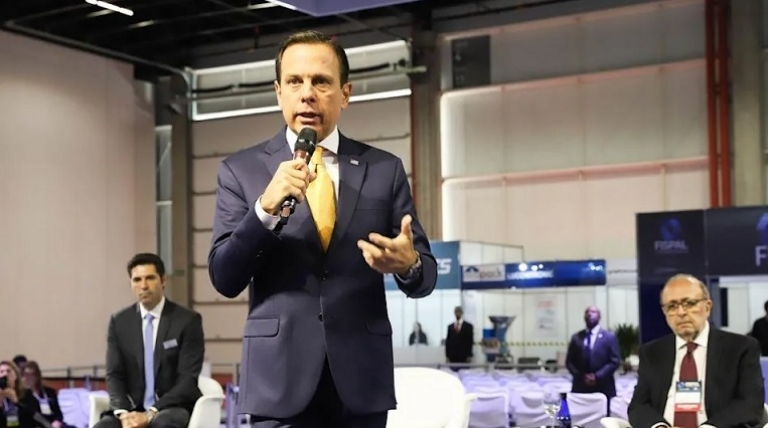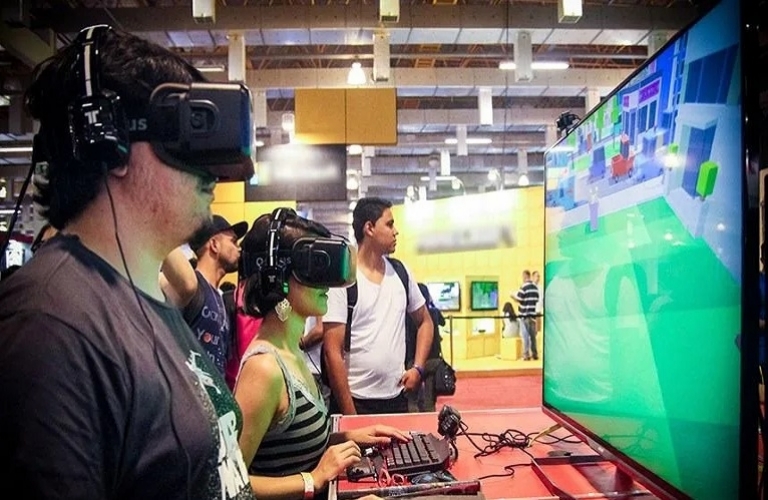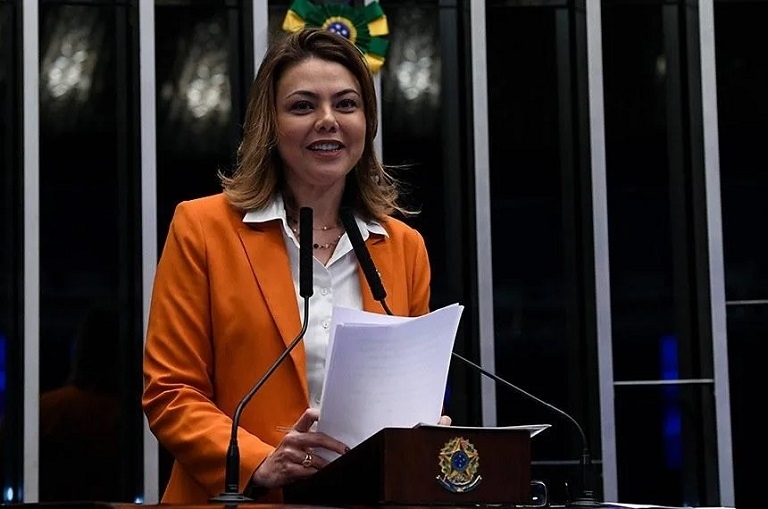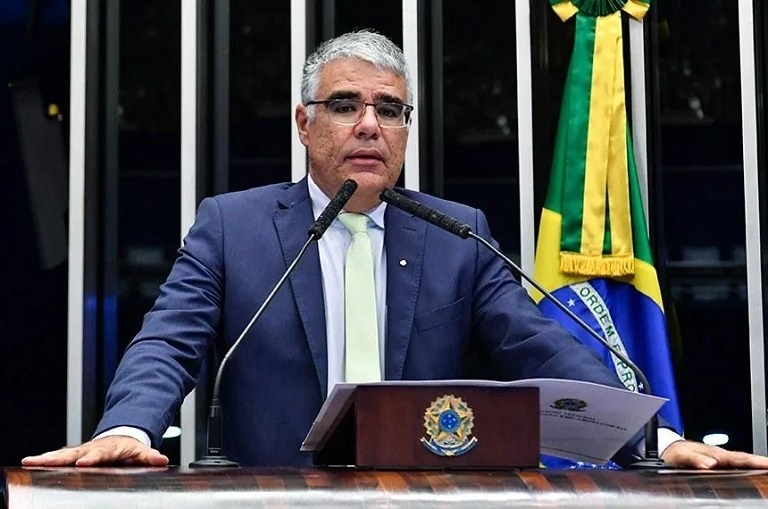

The regulation of eSports is an important step for professional players of Free Fire Championships, League of Legends and other games, to gain employment rights and the support of public policies, such as scholarships, to dedicate themselves to the practice.
Without a clear definition of the federal constitution on the subject, the Legislative Assemblies of Alagoas, Amazonas, Bahia, Ceará, Espírito Santo, Goiás, Mato Grosso, Paraíba, Paraná, Santa Catarina and São Paulo discussed the matter. Some of the projects that passed through these Legislative Houses are valid as law, recognized by state governments, as is the case of Goiás.
Other states went through different processes: they approved the regulation of electronic sports in the Legislative, but received a veto from the Executive Branch. This is the case of São Paulo. Members of the Legislative Assembly (ALESP) approved the regulation in 2019, but it ended up being vetoed by Governor João Doria (PSDB-SP).

The administration of São Paulo argued that the ALESP project was unconstitutional, as the state law could not legislate on games protected by intellectual property. Copyright is provided for in the Federal Constitution, which cannot be denied or overruled by state laws.
The conflict in São Paulo is just one example of the doubts generated by the regulation of electronic sports practice. In Ceará, state deputies came into conflict and almost ended up in court during the debate on the subject.
It all started when the state deputy, André Fernandes (PSL-CE), filed a complaint with the Public Ministry accusing his colleague Nezinho Farias (PDT-CE) of wanting to finance the criminal faction First Command of the Capital (PCC) with the regulation of eSports.
According to the PSL congressman, the bill that recognized electronic sports could open a loophole for the regularization of the jogo do bicho, used, according to the deputy, to launder money for criminal organizations.
Faced with his colleague's accusation, deputy Nezinho had to explain to deputy André Fernandes the difference between "gambling games", such as the jogo do bicho, of electronic games. The case ended up being filed and the discussion on the regulation of eSports remains undefined in the state, according to the system of the State Legislature.

The example of what happened in Ceará shows, in general, the lack of knowledge and the need to regulate the practice of electronic sports in a professional manner in Brazil. In addition to the cases of São Paulo and Ceará, check out how Brazilian states debate and legislate on the topic:
Alagoas
In 2019, the state government of Alagoas sanctioned the bill to regulate eSports, authored by state deputy Cibele Moura (PSDB-AL). The article transforms, by law, practitioners of electronic games in the state into athletes, enabling the state to invest in projects to promote the practice. The text also defined the 28th of June as the State Day of Electronic Sports.
Amazonas
In November 2020, the Amazon State Assembly approved bill no. 5321, which institutes the State Electronic Sports Day on June 27th. The date alludes to the foundation of Atari, in 1972. The bill authored by Congressman Carlinhos Bessa (PV-AM) still recognizes electronic sports practice in the state. The matter was sanctioned by the government, which can now, based on the proposal, invest in public policies to promote electronic sports.
Bahia
The Legislative Assembly of Bahia (ALBA) unanimously approved the project by state deputy Paulo Câmara (PSDB-BA), which not only recognizes electronic competitions as a sport, but also an element of promotion of the tourism sector and the generation of employment and income. The matter was sanctioned by Governor Rui Costa (PT-BA), placing the northeastern state on the list of federation entities that regulated eSports.
Espírito Santo
A proposal that aims to recognize electronic sports as a sport is still under discussion in the Legislative Assembly of Espírito Santo. The project presented by deputy Dr. Emílio Mameri (PSDB-ES) has been stopped for over 60 days awaiting a deliberation by the plenary. As in other states, the proposal seeks to legally recognize the practice to allow the state government to invest in dissemination and promotion. In addition, the text institutes the State Electronic Sports Day for June 24th.
Goiás
It was approved by the Legislative Assembly of Goiás (ALGO) a project that not only recognizes electronic sports practice, but also institutes a state policy aimed at granting full scholarships to athletes who wish to join educational institutions that offer courses focused on the practice of sports. The step taken by the ALGO deputies is audacious and may motivate other states to guarantee admission to colleges and educational institutions, with scholarships for athletes in electronic competitions.
Mato Grosso
State deputies of the Mato Grosso Legislative Assembly are still preparing to analyze a project that creates the State Policy for Incentives to Professional Practice of Electronic Sports. The project is controversial, as it compares professional athletes in electronic eSports with those in traditional sports. The idea not only equals obligations for those who want to compete professionally in Free Fire competitions and other games, but also the benefits.
The text provides that electronic sports athletes may be financed and sponsored by public entities, in addition to creating the State Day of Electronic Sports and Electronic Sports Athlete on October 19th. The date alludes to one of the first competitions in the news. In 1972, Stanford University, in the United States, received a Space Invaders contest.
Paraíba
The government of Paraíba sanctioned a law approved by the State Legislative Assembly (ALPB) that recognizes practitioners of electronic sports competitions as athletes. The project by state deputy Jutay Meneses (Republicanos-PB) differs from what other states have proposed, as it includes the modalities of eSports in the state's Bolsa Esporte program. In practice, a project approved in 2020, includes participants in game championships in the group of athletes who can receive financial incentives from the state government to dedicate themselves to routine training and competitions.
Paraná
Paraná is another state to have a specific regulatory law for eSports. The project was developed with the help of Daniel Cossi, president of the Brazilian Confederation of Electronic Sports (CBDEL) and is scheduled for June 27 the State Electronic Sports Day. The date alludes to the foundation of Atari, as well as in Amazonas. The law was proposed by state deputy Douglas Fabrício (Cidadania-PR).
Santa Catarina
The Legislative Assembly of Santa Catarina (ALESC) created a parliamentary front to discuss how state legislation can strengthen and foster the electronic games and competitions industry in the state. Legislative numbers indicate that Santa Catarina has 6% of the country's developers and approximately 5% of the self-employed professionals in the area. There are a total of 17 companies formalized and four not formalized, according to ALESC's accounts, placing the state in the southern region in seventh place in the Brazilian ranking of the sector. Congressman Fabiano da Luz (PT-SC) is the creator and coordinator of the front, which, after discussions, may present a bill to recognize electronic sports in the state.

The Importance of Legislation for eSports
The games industry as a whole should generate US$180 billion, in 2021 alone. Data from the analysis company NewZoo, point out that the revenue in this market already exceeds by up to seven times the revenue generated annually by the film and music industries.
Brazil appears in this scenario as a storehouse of talents, influencers and a huge crowd for the competitive modalities of games such as Counter-Strike, Free Fire and League of Legends. It is estimated that the Brazilian gaming market gathers 12 million occasional fans and more than 9 million of an enthusiastic audience, forming the third largest captive audience in this multi-million dollar market.
In the opposite direction of a sector that only grows in the country, a federal legislation that regulates the practice of electronic sports in Brazil has not passed a phase for years in Brasília. Currently, electronic sports leagues and federations comply with the provisions of the general sport law, known as Lei Pelé. The text was approved in 1998, at least two years before the first Counter-Strike competition, the Cyberathlete Professional League (CPL).
Seeing the need to update legislation on the subject, the Chamber of Deputies and the Federal Senate started, in 2017, a discussion to recognize electronic sports as a sport.
Discussion in the Federal Senate
Electronic sports involve the intellectual property rights of the companies that develop the games for competitions. With the impossibility of treating the modalities as traditional sports, the Federal Senate started, in 2017, an incursion to create its own legislation for the market.
Bill No. 383 of 2017, authored by senator Roberto Rocha (PSDB-MA), has already passed through the Science, Technology, Innovation, Communication and Information Technology Committee, in addition to the Education, Culture and Sports Committee. The text that recognizes electronic sports practice in Brazil awaits the decision of the president of the Senate, Rodrigo Pacheco (DEM-MG), to be included in the voting agenda.
The project, which could be celebrated by the community, has resistance in the ecosystem of those who follow and compete in electronic sports. A popular consultation on the Senate website revealed that 86% of the population expressed opposition to the proposal.

In an interview with the Senate News Agency, senator Leila Barros (PSB-DF) explained that the rejection of a regulation comes from the fear that Brazilian politics could interfere and hinder the practice of eSports here. “In general, the gaming community disapproves of any attempt at regulation. They understand that the State wants to interfere in an activity that is consolidated and working very well. We cannot create something that encourages the growth of the sector. It generates jobs and heats up the economy,” declared the senator.
The fear of the community has its reasons. In 2019, the Senate analyzed an amendment by senator Eduardo Girão (Podemos-CE) to the regulation project that tried to prevent violent games from being recognized as a sport.
If approved, the idea would result in the irregularity of athletes who compete in Rainbow Six, Counter-Strike: Global Offensive and other games. The senator argued that this kind of competition and play could encourage violence. The belief is based on inconclusive studies on the influence of violent games on younger people.
In defense of the ban, senator Girão linked the massacre at a school in Suzano, São Paulo, which took place in March 2019, to games with a content of violence. In the tragedy, two former students killed 11 young people and left 11 others injured. It is worth noting that many studies have proven that there is no connection between games and violent behavior. The proposed amendment was rejected. But, since then, the discussion about the regulation of eSports has been stalled in the Senate.

Discussion in the Chamber of Deputies
Watching the inertia in the Legislative House next door, the Chamber of Deputies also began debating the regulation of electronic sports. In 2020, the house established a Parliamentary Front in favor of electronic games. The group of 202 deputies makes up the front that was predisposed to debate the regulation. The bench held some public hearings with figures from the Brazilian Confederation of Games and eSports, the Marketing manager of Flamengo Daniel Bonvini, and the executive director of BBL e-Sports Leo de Biase. The objective was to reach the necessary points in a fair legalization of electronic sports practice.
The debate also showed a division in the community. Part of the eSports ecosystem, including publishers and professional teams, do not recognize confederations and their need for a standardization of electronic sports. According to the Chamber News Agency, some organizations spoke out against the regularization, believing that impositions provided for by law could isolate Brazil from international competitions. Regulated or not, electronic sports have been a reality in the country for many years.
Source: Canaltech